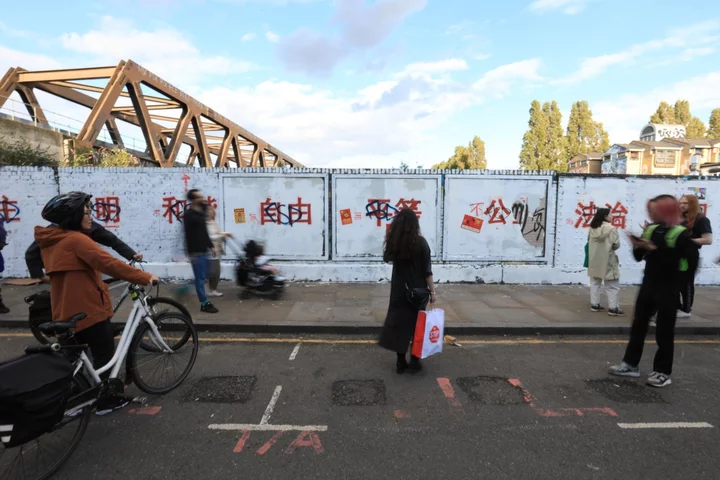China has accused the British government of failing to meet its diplomatic obligations, after a plan to relocate its embassy to an historic building in east London appeared on the verge of collapse.
The Chinese government bought the old Royal Mint near the Tower of London for £255 million ($325 million) in 2018 with the intention of moving its embassy to the sprawling 700,000-square foot site from the central Marylebone district. China’s embassy in Washington DC is some 430,000 square foot, by comparison.
But the move was scuppered when Tower Hamlets council rejected planning permission for the new development on the historical site in December 2022, days after Prime Minister Rishi Sunak declared an end to the “golden era” of UK-China relations.
Local residents objected to the move, citing concerns about recent assaults on anti-Communist Party protesters and government warnings about Chinese “secret police stations” in the UK.
That set the clock ticking toward an Aug. 10 deadline for China to appeal the council’s rejection. China appears to have decided instead to air its frustrations with Sunak’s administration for not intervening.
“It is the international obligation of the host country to provide facilitations and support for the construction of diplomatic premises,” the Chinese embassy in London said in an emailed response to Bloomberg, declining to answer whether it would appeal or if it has given up on using the site for an embassy. “We urge the UK side to fulfill its relevant international obligations.”
Beijing found it strange local officials could block such a move, and saw it as a matter for the national government rather than regional planners, according to two people familiar with the matter who asked to be anonymous when discussing sensitive issues.
China’s Foreign Ministry said in an emailed statement it had always tried to find a solution with the UK “based on the principles of reciprocity and equal treatment.”
Sunak’s government declined to comment. A British official said they did not think China had decided to appeal the planning refusal and that it had not crossed the desk of the relevant minister, Housing Secretary Michael Gove.
Tower Hamlets said in a statement that if the Chinese government intended to appeal by the deadline, it had to give prior notice. “We haven’t received any such notification from the applicant,” the council said.
Frayed Ties
The embassy fallout comes at a sensitive time for Sunak, who has been trying to repair relations with Beijing even as many in his governing Conservative Party are pressuring the premier to take a far less trade-friendly stance.
Ties between the UK and China have frayed over the Communist Party’s crackdown on Hong Kong’s pro-democracy opposition, while British government has also accused China of violating its handover agreement and granted long-term visas to tens of thousands of people leaving the city.
Beijing, for its part, has sanctioned senior British politicians in retaliation for their criticism of its alleged human rights abuses in Xinjiang. Those allegations have also played a part in local opposition to the planned embassy.
The diplomatic stand-off could potentially impact the UK’s own ambitions for embassy expansion in Beijing. The Chinese side has raised the issue of their rejected relocation in discussions about a years-long plan to renovate the UK Embassy in the Chinese capital, though the two matters weren’t explicitly linked, according to one person.
The British embassy in Beijing didn’t reply to a request for comment from Bloomberg.
China has been a lightning rod for controversy in Tower Hamlets. The council previously said it was considering renaming the streets around Royal Mint Court to Tiananmen Square, Uyghur Court and Hong Kong Road, to protest against China’s treatment of minority groups — particularly its policies against Uyghur people in the Xinjiang region. China is accused of detaining more than one million Uyghurs and subjecting them to forced labor.
This month tensions spilled over again when a debate over Beijing’s policies broke out in a public graffiti battle in the district.
A group of artists apparently from China spray-painted characters listing the Communist Party’s 12 “core socialist values” on a public wall, only for expressions of discontent with President Xi Jinping to appear later plastered over and around the original red characters. The wall has now become the focal point for criticism of China and inflamed divisions online, too.
--With assistance from Sarah Zheng.

